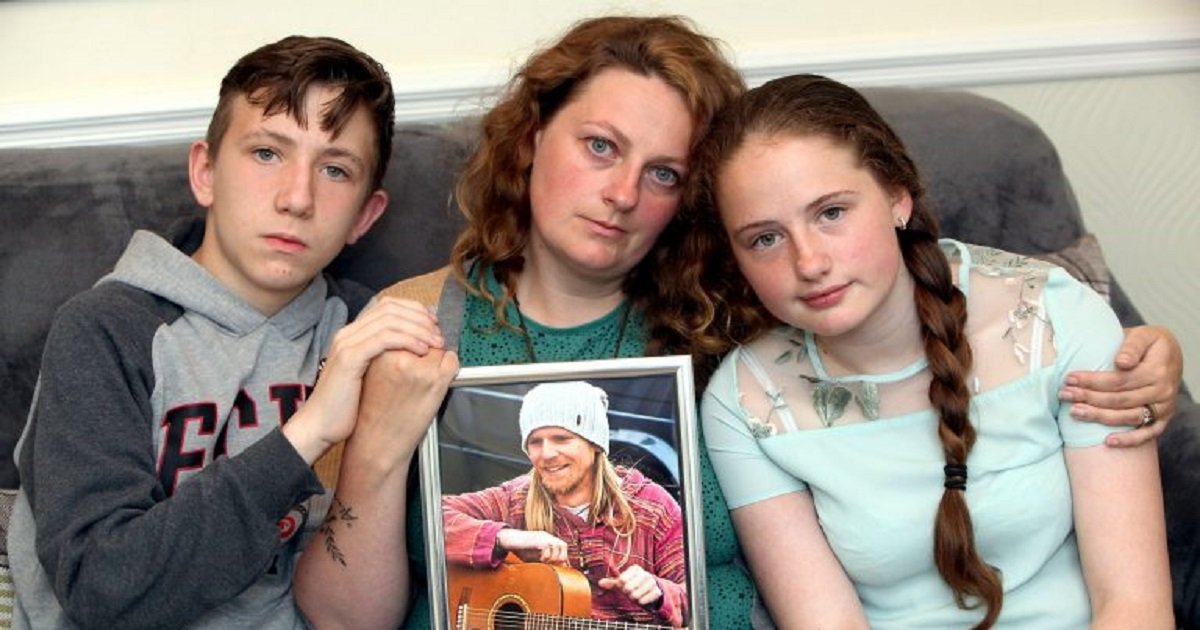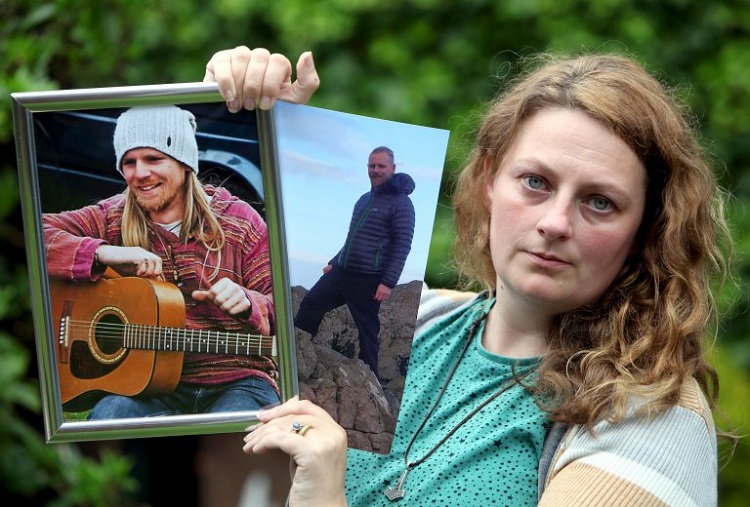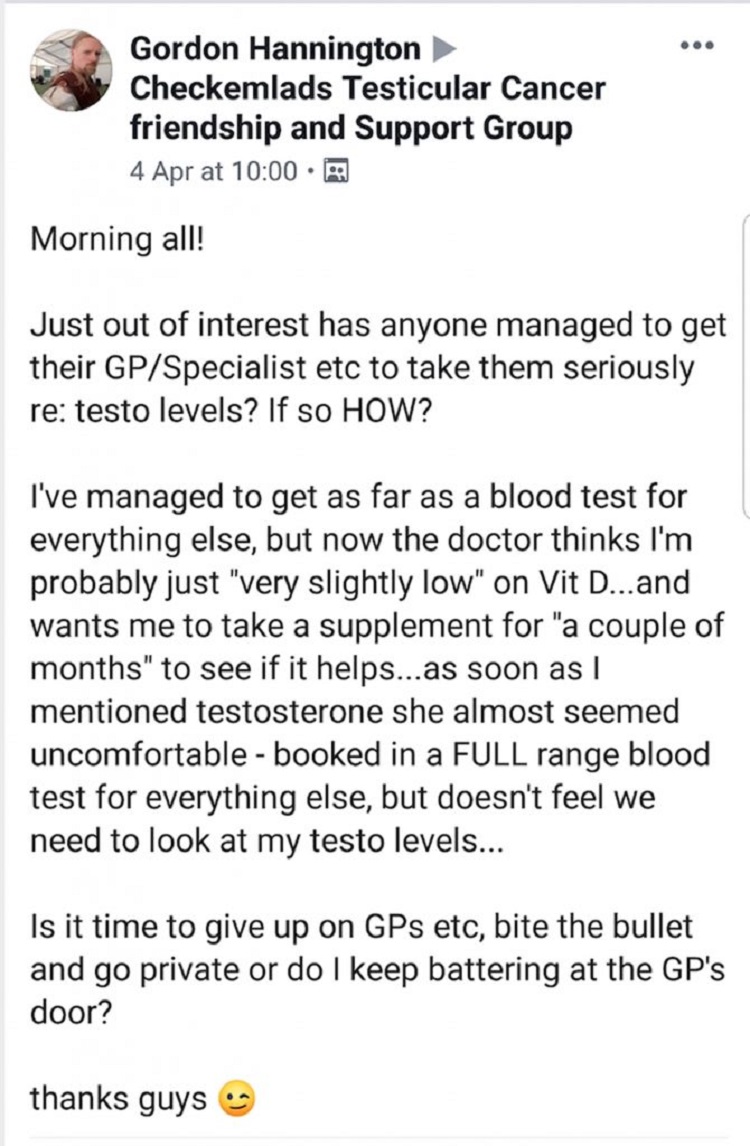Watch the heartbreaking story of the man in the video below.
[rumble video_id=v5br2l domain_id=u7nb2 iframe]
Doctors who repeatedly refused requests to check for low testosterone levels led a stunt man to take his own life. Those are the claims made by 35-year-old Lily Oak-Hannington whose husband Gordon, 33, hung himself the day after his blood test results came in sans the check on his testosterone levels.
Two years ago, Gordon underwent surgery to remove a cancerous left testicle. From a combat actor who loved being active and the outdoors, he became a recluse with numerous mood swings and bouts of depression.
The couple did their own research and believed Gordon was suffering from low testosterone but despite numerous requests to medical professionals, all of them refused to test him for low testosterone.
Lily, from Alnwick, Northumberland, has been left heartbroken and is speaking out to prevent others from suffering the same fate. She claims that Gordon’s inquest last month did not bother to investigate her claims.
The self-employed mother of two said: “It started two years ago when Gordon was diagnosed with testicular cancer.
“He had surgery to remove his left testicle and it was deemed that he didn’t need chemotherapy.
“We thought that was it, but six months later he started getting tired and irritable and he was just really struggling to motivate himself anymore.
“He had been a really active fit guy, he was constantly up, out and about doing things but as time went on he started having huge mood swings and would lay in bed four days a week.
“Over the next two years, he kept going to medics and asking them to test his testosterone levels, but every single time they blankly refused.
“I absolutely believe that if Gordon had been given these tests he would still be here with us. He was let down.
“At every stage, there were systematic failings – so many failings – he could and should have been caught so many times.
“A low testosterone diagnosis would have been an explanation for him, it would have allowed him to find a way to manage what was happening to him.”
According to Lily, Gordon tried at least five times to request a test of his testosterone levels but was always rebuffed. One doctor even said he just had Vitamin D deficiency which could be handled by supplements.
However, none of the medical professionals they approached explained why Gordon couldn’t get tested but she pointed out that all British Society for Sexual Medicine guidelines (BSSM) guidelines suggest that he should have been tested.
They even considered getting a private testosterone prescription but they couldn’t afford a private doctor. Gordon made a last-ditch effort in March this year to get his doctor to sign off on a testosterone test.
Doctors did do a blood test on Gordon…except for his testosterone levels. The day after receiving a letter saying all his test results were normal but that they didn’t do the testosterone test, Gordon took his own life.
He didn’t leave a suicide note but a Facebook post just before he died revealed the depths of his frustration at the continued refusal to test his testosterone levels.
Lily said: “We had looked into the symptoms of low testosterone and we knew it was what Gordon had.
“What was even more worrying was the fact that this was happening to so many other men across the country.
“It’s scary how closely the numbers of male suicide and numbers of testicular cancer match up.
“We are constantly telling men to speak up and talk about how they are feeling, but Gordon did do this.
“He told them so many times and he was dismissed.”
Gordon’s care provider, Glendale Surgery, said through a spokesman: “We take our duty of care to all patients very seriously.
“We were very sorry to learn of this patient’s death but our duty of confidentiality towards him means that we cannot divulge any information specific to his care.
“If the family wish to bring any concerns they have directly to us, we will endeavor to respond directly to them in confidence.”
Philly Morris, founder of Checkemlads testicular cancer charity and support group, said: “We see lots of cancer survivors suffering from low testosterone levels and depression.
“The old thinking was that one testicle was enough, but this hasn’t been looked into for the last 50 years and in our experience, almost 90 percent of cancer survivors really struggle afterward with low testosterone symptoms – weight gain, lethargy, sexual dysfunction and feeling very low.




